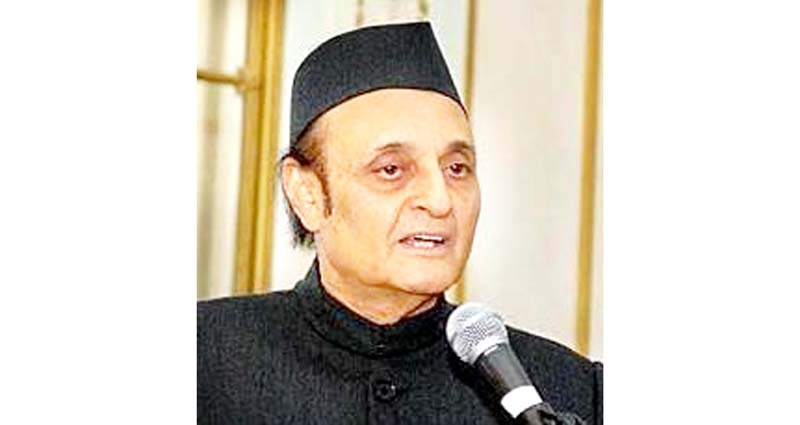Excelsior Correspondent
JAMMU, Oct 31: Reacting to bifurcation of Jammu and Kashmir into two Union Territories of Jammu and Kashmir and Ladakh which was formally done today, former Sadr-i-Riyasat of undivided Jammu and Kashmir, Dr Karan Singh said today that all empires invariably come to an end and this (the State of J&K) was no exception.
In an exclusive statement issued to the Excelsior, Karan Singh said: “It will be useful to recall how it (the undivided State of Jammu and Kashmir) was created and what a significant role it played in our strategic and geo-political history since the last two centuries”.
Asserting that the State of Jammu and Kashmir came into being (by a curious coincidence because that is my own birthday) on March 9, 1846, with the signing of the Treaty of Amritsar by Maharaja Gulab Singh with the British, the former Sadr-i-Riyasat, who also served as the Union Minister, said this multi-regional, multi-cultural, multi-linguistic and multi-religious empire continued until 26th October 1947 when his father signed the Instrument of Accession to India.
“It was an empire ruled for 101 years by the Dogras and then for 72 years by the Kashmiris. Half of the empire was lost when we signed the ceasefire agreement with Pakistan which came into effect on Ist January 1949. This left the huge area of Gilgit-Baltistan and the western Muzaffarabad-Mirpur strip under Pakistan control, involving roughly half the geographical area of the original State and a third of its population,” Dr Karan Singh recalled.
He noted that the attenuated empire carried on for next seven decades and came to an end on 31st October 2019 with the original State having finally been bifurcated into two Union Territories of Ladakh and Jammu-Kashmir.
“It is not generally appreciated that the original State of Jammu and Kashmir covering 84,000 square miles, the largest princely State in British India, was in fact a Dogra empire built up at great efforts and sacrifices by my ancestors Maharaja Gulab Singh and Maharaja Ranbir Singh, who extended the frontiers of India to the very borders of Tibet and Central Asia,” Dr Karan Singh said.
This, according to Dr Karan Singh, involved sustained military endeavours by the Dogra army led by legendary leaders like General Zorawar Singh, who conquered Ladakh, General Baj Singh and Mehta Basti Ram, who conquered Gilgit.
“The Dogras thus substantially extended the Northern frontiers of India which otherwise may not have gone beyond the Banihal range. This is a feat for which the Dogras have not received the credit that they deserve in our history books and in our general imagination,” Dr Karan Singh said.


